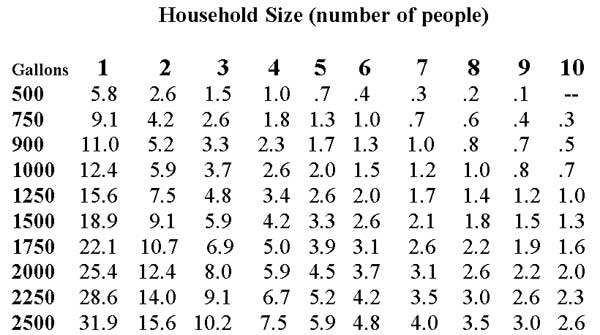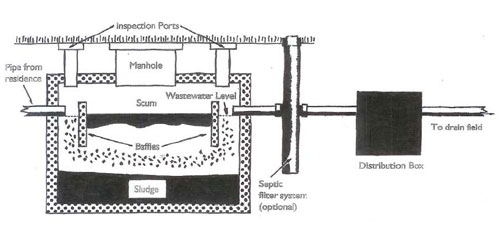Dos & Don’ts About Your Septic System
For those of you who have septic systems you should have basic knowledge on how your system operates and how to maintain and ensure proper functioning.
The number one question
is how often should I have the solids pumped out of my septic?
1. It depends on the number of people in the household and the size
of the septic tank.
2. The amount of waste water that is generated (base this on number of people in household and amount of water that is used).
3. The volume of solids in wastewater (using a garbage disposal will increase the amount of solids). Use white toilet paper it breaks down faster then colored. Dye in colored toilet paper holds the fibers together longer causing it to take longer to break down.
Try to conserve water this prolongs the life of the system. When you reduce the water flow into your system this helps the solids in your tank sink to the bottom which produces less agitation in the tank.
Repairs to leaky faucets, fixtures and toilets should be done promptly. Leaks will add up to extra water and agitation of solids which can lead to system malfunctions down the road.
Remember that showers require less water then baths, front loader washing machine use 1/3 less water then top loading machines.
Estimated Septic Tank Pumping
Frequencies in Years (for year round residences)

For example: If (4) people reside in a home with a 1000 gallon septic tank, the tank should be pumped every 2.6 years.
If the capacity of your septic tank is unknown have the tank pumped by a septic service company. They can tell you the capacity after pumping. Pump your system regularly, clogged drain fields are the leading reason for septic system malfunctions and failures.
Never flush harmful products or foreign objects into your septic system. Doing so can cause system malfunctions and or failure and destroy the biological digestion taking place within the system or clog pumps and pipes.
Items that should not be subjected to you septic:
Hair combings, dental floss, sanitary napkins, tampons, condoms, paper towels, grease or oil, coffee grounds, cigarette butts, disposable diapers or kitty litter.
Paints, varnishes, thinners, waste oils, pesticides, photographic solutions.
Always use a trap in your sink so that large items will not pass into you tank. Solids can cause clogging problems if not contained.
You should never drive heavy equipment or vehicles over your drain field. This can cause damage and a system failure.
Keep your drain field free of debris, especially trees the roots can grow around pipes and cause problems. Grass is the best cover for a drain field. Try to divert your surface water from roofs, patios and driveways from the absorption field to prevent damage to the area.
